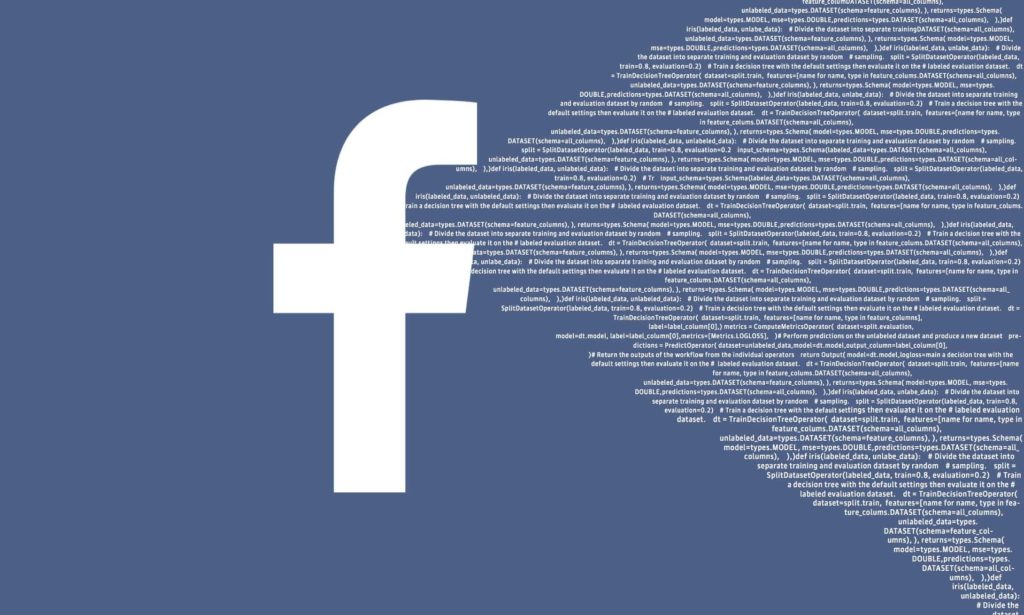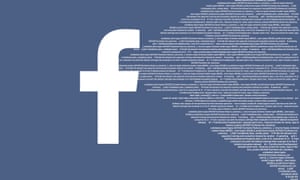
Facebook’s war on free will
Facebook’s war on free will https://csuiteold.c-suitenetwork.com/wp-content/uploads/2017/09/facebooks-war-on-free-will-1024x615.jpg 1024 615 C-Suite Network https://csuiteold.c-suitenetwork.com/wp-content/uploads/2017/09/facebooks-war-on-free-will-1024x615.jpg
ll the values that Silicon Valley professes are the values of the 60s. The big tech companies present themselves as platforms for personal liberation. Everyone has the right to speak their mind on social media, to fulfil their intellectual and democratic potential, to express their individuality. Where television had been a passive medium that rendered citizens inert, Facebook is participatory and empowering. It allows users to read widely, think for themselves and form their own opinions.
We can’t entirely dismiss this rhetoric. There are parts of the world, even in the US, where Facebook emboldens citizens and enables them to organise themselves in opposition to power. But we shouldn’t accept Facebook’s self-conception as sincere, either. Facebook is a carefully managed top-down system, not a robust public square. It mimics some of the patterns of conversation, but that’s a surface trait.
In reality, Facebook is a tangle of rules and procedures for sorting information, rules devised by the corporation for the ultimate benefit of the corporation. Facebook is always surveilling users, always auditing them, using them as lab rats in its behavioural experiments. While it creates the impression that it offers choice, in truth Facebook paternalistically nudges users in the direction it deems best for them, which also happens to be the direction that gets them thoroughly addicted. It’s a phoniness that is most obvious in the compressed, historic career of Facebook’s mastermind.
Mark Zuckerberg is a good boy, but he wanted to be bad, or maybe just a little bit naughty. The heroes of his adolescence were the original hackers. These weren’t malevolent data thieves or cyberterrorists. Zuckerberg’s hacker heroes were disrespectful of authority. They were technically virtuosic, infinitely resourceful nerd cowboys, unbound by conventional thinking. In the labs of the Massachusetts Institute of Technology (MIT) during the 60s and 70s, they broke any rule that interfered with building the stuff of early computing, such marvels as the first video games and word processors. With their free time, they played epic pranks, which happened to draw further attention to their own cleverness – installing a living cow on the roof of a Cambridge dorm; launching a weather balloon, which miraculously emerged from beneath the turf, emblazoned with “MIT”, in the middle of a Harvard-Yale football game.
The hackers’ archenemies were the bureaucrats who ran universities, corporations and governments. Bureaucrats talked about making the world more efficient, just like the hackers. But they were really small-minded paper-pushers who fiercely guarded the information they held, even when that information yearned to be shared. When hackers clearly engineered better ways of doing things – a box that enabled free long-distance calls, an instruction that might improve an operating system – the bureaucrats stood in their way, wagging an unbending finger. The hackers took aesthetic and comic pleasure in outwitting the men in suits.
When Zuckerberg arrived at Harvard in the fall of 2002, the heyday of the hackers had long passed. They were older guys now, the stuff of good tales, some stuck in twilight struggles against The Man. But Zuckerberg wanted to hack, too, and with that old-time indifference to norms. In high school he picked the lock that prevented outsiders from fiddling with AOL’s code and added his own improvements to its instant messaging program. As a college sophomore he hatched a site called Facemash – with the high-minded purpose of determining the hottest kid on campus. Zuckerberg asked users to compare images of two students and then determine the better-looking of the two. The winner of each pairing advanced to the next round of his hormonal tournament. To cobble this site together, Zuckerberg needed photos. He purloined those from the servers of the various Harvard houses. “One thing is certain,” he wrote on a blog as he put the finishing touches on his creation, “and it’s that I’m a jerk for making this site. Oh well.”
His brief experimentation with rebellion ended with his apologising to a Harvard disciplinary panel, as well as to campus women’s groups, and mulling strategies to redeem his soiled reputation. In the years since, he has shown that defiance really wasn’t his natural inclination. His distrust of authority was such that he sought out Don Graham, then the venerable chairman of the Washington Post company, as his mentor. After he started Facebook, he shadowed various giants of corporate America so that he could study their managerial styles up close.
Still, Zuckerberg’s juvenile fascination with hackers never died – or rather, he carried it forward into his new, more mature incarnation. When he finally had a corporate campus of his own, he procured a vanity address for it: One Hacker Way. He designed a plaza with the word “HACK” inlaid into the concrete. In the centre of his office park, he created an open meeting space called Hacker Square. This is, of course, the venue where his employees join for all-night Hackathons. As he told a group of would-be entrepreneurs, “We’ve got this whole ethos that we want to build a hacker culture.”
Plenty of companies have similarly appropriated hacker culture – hackers are the ur-disrupters – but none have gone as far as Facebook. By the time Zuckerberg began extolling the virtues of hacking, he had stripped the name of most of its original meaning and distilled it into a managerial philosophy that contains barely a hint of rebelliousness. Hackers, he told one interviewer, were “just this group of computer scientists who were trying to quickly prototype and see what was possible. That’s what I try to encourage our engineers to do here.” To hack is to be a good worker, a responsible Facebook citizen – a microcosm of the way in which the company has taken the language of radical individualism and deployed it in the service of conformism.
Zuckerberg claimed to have distilled that hacker spirit into a motivational motto: “Move fast and break things.” The truth is that Facebook moved faster than Zuckerberg could ever have imagined. His company was, as we all know, a dorm-room lark, a thing he ginned up in a Red Bull–induced fit of sleeplessness. As his creation grew, it needed to justify its new scale to its investors, to its users, to the world. It needed to grow up fast. Over the span of its short life, the company has caromed from self-description to self-description. It has called itself a tool, a utility and a platform. It has talked about openness and connectedness. And in all these attempts at defining itself, it has managed to clarify its intentions.
Though Facebook will occasionally talk about the transparency of governments and corporations, what it really wants to advance is the transparency of individuals – or what it has called, at various moments, “radical transparency” or “ultimate transparency”. The theory holds that the sunshine of sharing our intimate details will disinfect the moral mess of our lives. With the looming threat that our embarrassing information will be broadcast, we’ll behave better. And perhaps the ubiquity of incriminating photos and damning revelations will prod us to become more tolerant of one another’s sins. “The days of you having a different image for your work friends or co-workers and for the other people you know are probably coming to an end pretty quickly,” Zuckerberg has said. “Having two identities for yourself is an example of a lack of integrity.”
The point is that Facebook has a strong, paternalistic view on what’s best for you, and it’s trying to transport you there. “To get people to this point where there’s more openness – that’s a big challenge. But I think we’ll do it,” Zuckerberg has said. He has reason to believe that he will achieve that goal. With its size, Facebook has amassed outsized powers. “In a lot of ways Facebook is more like a government than a traditional company,” Zuckerberg has said. “We have this large community of people, and more than other technology companies we’re really setting policies.”
ithout knowing it, Zuckerberg is the heir to a long political tradition. Over the last 200 years, the west has been unable to shake an abiding fantasy, a dream sequence in which we throw out the bum politicians and replace them with engineers – rule by slide rule. The French were the first to entertain this notion in the bloody, world-churning aftermath of their revolution. A coterie of the country’s most influential philosophers (notably, Henri de Saint-Simon and Auguste Comte) were genuinely torn about the course of the country. They hated all the old ancient bastions of parasitic power – the feudal lords, the priests and the warriors – but they also feared the chaos of the mob. To split the difference, they proposed a form of technocracy – engineers and assorted technicians would rule with beneficent disinterestedness. Engineers would strip the old order of its power, while governing in the spirit of science. They would impose rationality and order.
This dream has captivated intellectuals ever since, especially Americans. The great sociologist Thorstein Veblen was obsessed with installing engineers in power and, in 1921, wrote a book making his case. His vision briefly became a reality. In the aftermath of the first world war, American elites were aghast at all the irrational impulses unleashed by that conflict – the xenophobia, the racism, the urge to lynch and riot. And when the realities of economic life had grown so complicated, how could politicians possibly manage them? Americans of all persuasions began yearning for the salvific ascendance of the most famous engineer of his time: Herbert Hoover. In 1920, Franklin D Roosevelt – who would, of course, go on to replace him in 1932 – organised a movement to draft Hoover for the presidency.
The Hoover experiment, in the end, hardly realised the happy fantasies about the Engineer King. A very different version of this dream, however, has come to fruition, in the form of the CEOs of the big tech companies. We’re not ruled by engineers, not yet, but they have become the dominant force in American life – the highest, most influential tier of our elite.
There’s another way to describe this historical progression. Automation has come in waves. During the industrial revolution, machinery replaced manual workers. At first, machines required human operators. Over time, machines came to function with hardly any human intervention. For centuries, engineers automated physical labour; our new engineering elite has automated thought. They have perfected technologies that take over intellectual processes, that render the brain redundant. Or, as the former Google and Yahoo executive



